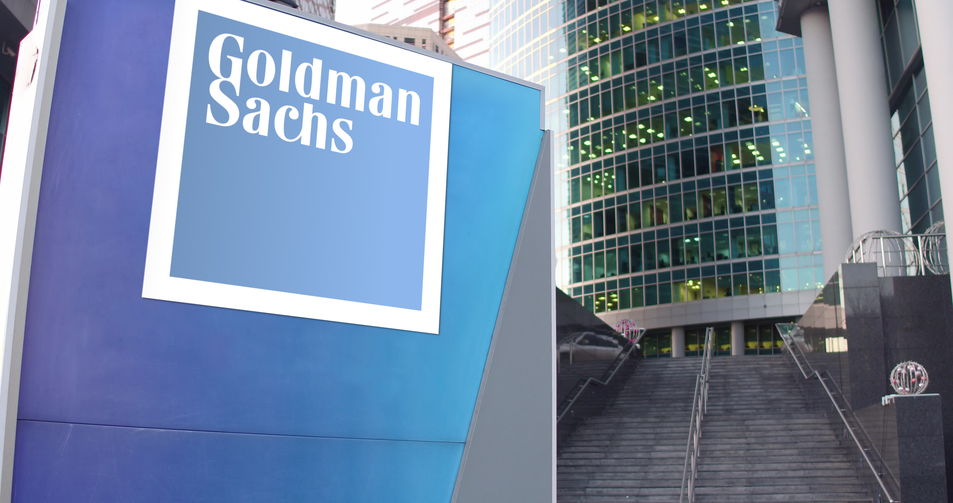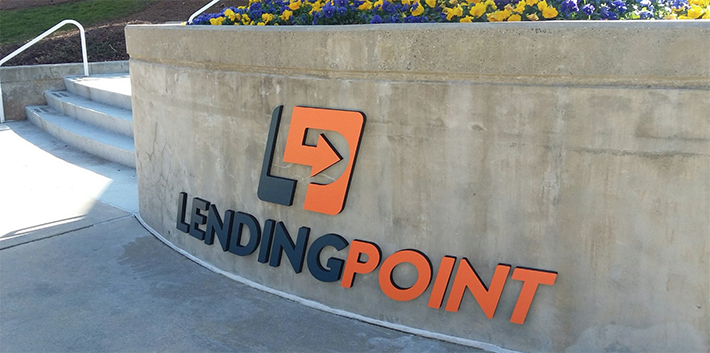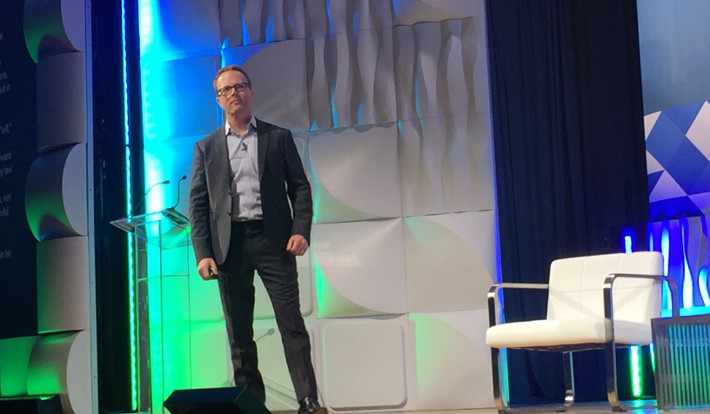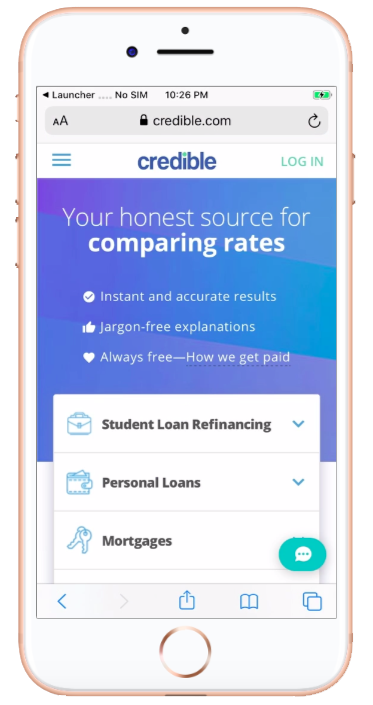Online Lending
What Happened to Borro?
October 6, 2019Borro has since relaunched. Story is HERE
 In 2013, Borro, an innovative online lending company that was poised to disrupt pawn shop lending forever, invited me to their stylish offices at 767 Third Avenue in Manhattan. It wasn’t for a story per se, but rather to learn more about each other’s place in the world of online lending. deBanked was still called Merchant Processing Resource and Borro, well they were beginning to take a shine to the idea that business owners could be a good source of potential customers. Framed as a “luxury asset-backed lender,” deBanked would eventually cover the concept two years later as Borro and other lenders like them took off.
In 2013, Borro, an innovative online lending company that was poised to disrupt pawn shop lending forever, invited me to their stylish offices at 767 Third Avenue in Manhattan. It wasn’t for a story per se, but rather to learn more about each other’s place in the world of online lending. deBanked was still called Merchant Processing Resource and Borro, well they were beginning to take a shine to the idea that business owners could be a good source of potential customers. Framed as a “luxury asset-backed lender,” deBanked would eventually cover the concept two years later as Borro and other lenders like them took off.
A then-executive of Borro explained the model as follows, “People don’t want to put their house at risk when they need capital. They’d rather lose the Maserati or a lovely piece of art than the house.” Ferraris, fine wine, rolexes, whatever, they would take it and make loans as low as $20,000 to as high as $10 million. Borro made $50 million worth of such loans in 2013 and doubled that number in 2014. Founded in the UK, the company’s expansion into the US was indicative of untapped demand and sky high potential. Big name investors got behind it including Victory Park Capital, Canaan Partners, Eden Ventures, and Augmentum Capital, eventually tallying up to more than $200 million raised.
 But less than two years after deBanked ran its story, Borro went into administration, the UK’s version of bankruptcy.
But less than two years after deBanked ran its story, Borro went into administration, the UK’s version of bankruptcy.
What happened?
Zelf Hussain, Partner at PwC, had to answer that question in his position as joint administrator of BGH Realisations (2017) Limited, a Borro holding company. Hussain retells the tale in a 2018 Companies House report. It is as follows:
In February 2014, Victory Park Management LLC (VPM) entered into a £67 million credit facility with a number of Borro companies which was guaranteed, inter alia, by the Company. The VPM loan was intended to allow Borro to expand its portfolio and make larger value loans to clients.
Following the VPM loan, Borro’s loan book increased in size and it moved into property lending. This was not a successful move and several loans went into default. In addition, Borro was unsuccessful in selling the underlying properties of defaulted loans in a timely manner. These issues exacerbated its cash flow issues due to carrying costs and the cost of interest due to VPM.
Following a review of the Borro business, it was decided that the property lending side of the business would be closed down. In addition, VPM became aware of other customer loans that were in arrears and these lead to further cash flow issues and a depletion of Borro’s working capital.
In an effort to raise additional capital, Borro instructed investment advisors to run a sales proces. No bids were received which would serve to fully repay VPM or provide any equity value beyond the debt obligations to VPM.
In light of the failed sales process, PwC was engaged by the Company to assess its options. Following discussions, VPM offered to purchase the business and assets of the Company, including its share in Borro Limited (BL) and therefore indirectly the shares in other Borro group companies.
On 15 November 2017 the Company directors resolved that placing the Company into administration to facilitate the transfer of ownership of BL to VPM was in the best interests of all stakeholders and, in particular, the Company’s creditors. VPM would be a well-capitalised and supportive owner, with a long term plan for the business.
We were appointed as administrators on 15 November 2017, and effected the sale of the business and assets to VPM in a pre-packaged transaction on the same day.
Since then, Borro trudged along, but earlier this year the company stopped making new loans.
The news was cheered by one of the same pawn shop lenders that Borro was supposed to disrupt. Jordan Tabach-Bank, a board member of the National Pawnbrokers Association and CEO of a family owned pawn shop business, used the company’s downfall to promote the benefits of doing business offline. “Our clients like the personal touch of a face-to-face loan, particularly when entrusting us to safeguard their most precious and expensive personal possessions,” he wrote in a release.
No Fees, Ever – Is Goldman Sachs Winning Or Losing The Online Lending Battle?
September 30, 2019 Peer-to-Peer lending in the United States died the day Goldman Sachs launched a rival online lending company in 2016. Armed with a low cost of capital and the trust of a household name, Marcus, as Goldman Sachs referred to themselves, sought to further disrupt consumer lending by eliminating every type of fee including late fees. Its pitch was simple, “No fees. Ever.” Three years later, the company still hasn’t caught up to competitors like Lending Club in origination volume (Marcus’ loan book is $5B vs. Lending Club’s $15B). Its fee-less model may also be backfiring.
Peer-to-Peer lending in the United States died the day Goldman Sachs launched a rival online lending company in 2016. Armed with a low cost of capital and the trust of a household name, Marcus, as Goldman Sachs referred to themselves, sought to further disrupt consumer lending by eliminating every type of fee including late fees. Its pitch was simple, “No fees. Ever.” Three years later, the company still hasn’t caught up to competitors like Lending Club in origination volume (Marcus’ loan book is $5B vs. Lending Club’s $15B). Its fee-less model may also be backfiring.
Goldman’s consumer lending business has racked up major losses, according to the WSJ. “It spent heavily to buy startups and cloud-storage space, hire hundreds of techies, and build call centers in Utah and Texas. Loans have gone bad at a higher rate than that of rivals.”
For all of the bank’s early bluster, they were so afraid of negative PR, that they launched without a collections department, leading to significantly high bad debt, the WSJ reports. That has since changed. But where Goldman Sachs appears to have lost, they may still be on track to win. As a consumer “bank” Marcus can also accept deposits. It had collected $36 billion as of year-end 2018 and added another $14 billion this year so far. Goldman also scored a valuable partnership with Apple on a branded credit card. The pitch is a familiar one, “No fees. Not even hidden ones.”
 Apple promotes its card as “Created by Apple, not a bank,” yet The WSJ ironically reports that Goldman spent $300 million creating the card for Apple.
Apple promotes its card as “Created by Apple, not a bank,” yet The WSJ ironically reports that Goldman spent $300 million creating the card for Apple.
In a Q2 earnings call, Goldman CFO Stephen Scherr said that the bank was shifting its consumer lending focus from Marcus to the Apple Card. “I’d also say that if you look at the level and rate of growth in the Marcus loan business, while it continues to grow and perform well, we have slowed the increasing growth in that in contemplation of taking on increasing consumer credit through the card business,” he said. “What’s important for us is that we look at this on a risk-adjusted return basis not simply on a return on asset construct.”
Competitively, however, Scherr couldn’t answer if the consumer lending business’s costs will ultimately look more like a fintech lender or a bank as they scale. “What I can tell you is that what we have built jointly with Apple both on the front end and on the back end is intended to be operationally resilient, but equally is intended to be efficient both in terms of the application all through the delivery and on the back-end and so my expectation is that the efficiency will be reflected in that, but again premature to sort of put numbers around it.”
Of note is that Goldman acquired or acqui-hired from Clarity Money, Bond Street, and Final.
Earnin, Say What’s Your Price? Nas-backed Earnin Comes Under Investigation
September 17, 2019 Earnin, the self-proclaimed alternative to payday loans, is part of a new online lending category that is under investigation in eleven states and Puerto Rico for its similarities to payday loans. With such loans being banned in sixteen states, the app-based personal loans company has drawn the attention of various regulators after it was suggested that its lending model potentially shares a similar APR with payday loans.
Earnin, the self-proclaimed alternative to payday loans, is part of a new online lending category that is under investigation in eleven states and Puerto Rico for its similarities to payday loans. With such loans being banned in sixteen states, the app-based personal loans company has drawn the attention of various regulators after it was suggested that its lending model potentially shares a similar APR with payday loans.
Backed by rapper Nas (only as of June and on undisclosed terms), the company came under fire after it was reported that in a meeting its founder and CEO, Ram Palaniappan, discussed hiring a private investigator to look into the past of a New York Post journalist that was writing about them.
Operating under a ‘tipping’ system, Earnin profits from the loans it provides by suggesting that customers give a voluntary tip when repaying their loans. The default amount is $9 per $100 taken, but people have paid up to $14 per $100, this being the limit one can tip.
According to the New York Post, these tips can lead to APRs of over 400% for an individual advance. Uncertainty looms over Earnin’s model as the phrasing of ‘tipping’ confuses whether or not this can be classified as a loan fee. Say what’s your price? Borrowers may not be aware that their tip could put the loan’s cost on par with costly payday loans.
Earnin relies on analytics gathered from customers’ phones, with the company knowing how much users are paid per hour as well as knowing how long they were at work via their location, Earnin can accurately predict incoming wages.
In a company statement, Earnin said that its system “is a brand new model, so we expect, and welcome questions from regulators like the New York Department of Financial Services.” Since this announcement, Earnin no longer suggests a tip to users in New York and Nas has yet to comment on the situation.
For Sale: Three Loan Portfolios Held By Direct Lending Investments
August 19, 2019 The Court-appointed receiver of the now-defunct hedge fund, Direct Lending Investments (DLI), is gearing up to sell three loan portfolios with an aggregate par amount owed of $29.8 million. The portfolios comprise of business loans, consumer loans, and merchant cash advances.
The Court-appointed receiver of the now-defunct hedge fund, Direct Lending Investments (DLI), is gearing up to sell three loan portfolios with an aggregate par amount owed of $29.8 million. The portfolios comprise of business loans, consumer loans, and merchant cash advances.
An official notice of the proposed sale will be published in the Wall Street Journal and other publications. Bids on the portfolios are required to be submitted by August 29th. An auction may be conducted on September 5th.
Updates on the receivership process for DLI can be followed here.
The demise of Direct Lending Investments was sudden. The CEO resigned in March, shortly before the company was charged with a “long-running” fraud by the SEC. The company had apparently suffered a massive loss of investor capital due to a single failed investment. The investment was in VOIP Guardian Partners I LLC, a company that reloaned money to telecom businesses worldwide. VOIP filed for bankruptcy on March 11th.
LendingPoint Places Seventeenth on Inc. 5000
August 14, 2019 Today Inc. 5000 released is 2019 list of the fastest growing private companies in America, featuring alternative finance company LendingPoint in seventeenth place after it witnessed a three-year revenue growth of 9,265%. LendingPoint offers consumer loans of up $25,000 and provides financing to merchants, service providers, and medical institutions via its LendingPoint Merchant Solutions program.
Today Inc. 5000 released is 2019 list of the fastest growing private companies in America, featuring alternative finance company LendingPoint in seventeenth place after it witnessed a three-year revenue growth of 9,265%. LendingPoint offers consumer loans of up $25,000 and provides financing to merchants, service providers, and medical institutions via its LendingPoint Merchant Solutions program.
This is the Atlanta-based business’s debut on the list and it comes after LendingPoint had a strong twelve months, with it being on track to reach $100 million per month in loan originations by the end of 2019 as well as it being the year the company turned profitable. On top of these, LendingPoint also has plans to expand its operations by hiring an additional 100 people, bringing its Atlanta HQ up to nearly 300 staff members.
In a press release, LendingPoint CEO Tom Burnside claimed that “Our platform saw more originations in 2018 than in 2015, 2016 and 2017 combined [sic], and at the same time our credit performance improved allowing us to facilitate more financing for consumers online and at the point of sale.”
Such growth is attributed by Burnside to LendingPoint’s use of technology. “We started by using data and technology to provide access to credit to underserved [sic], expanded to providing financing options at the point of sale to virtually everyone, and are now working on ways to integrate financing and payments with loyalty using blockchain to protect PII and enhance customer experience.” Such technology makes use of over 10,000 alternative data points, while also using FICO as a weighted factor of their analysis, to determine an applicant’s approval.
“We spend a lot of time cross-tabularizing the data points,” said Mark Lorimer, LendingPoint’s Chief Communications and Public Affairs Officer, when asked about the company’s approach to tech. Confronted by vast amounts of data, Lorimer noted how LendingPoint makes use of its technology to determine the value of different variables, “it really is a matter of taking the data and turning it into information.”
On the subject of LendingPoint’s placement on the Inc 5000, Lorimer told deBanked that the company was “not really surprised” by the news. According to him, his colleagues had been keeping an eye on the performance of those companies who previously placed on the list and were aware of what was required to appear on it, while his CEO has a more exuberant take on it: “It has been quite a ride for the last three years, and we’ve only scratched the surface.”
Lending Club Still Logging Losses, But Not For Long?
August 9, 2019 LendingClub released its second quarter report this Tuesday.
LendingClub released its second quarter report this Tuesday.
Loan originations reached a new high of $3.1B, but the year-over-year growth rate for the quarter clocked in at only 11%, down from the 18% growth experienced the three straight previous quarters in a row. The company also generated a net loss of $10.6M. Beyond Q2 however, this appears to be in line with their plan for 2019, as they are forecasting to have a loss ranging from $23-38 million by year’s end, much better than the 2018 loss of $128.2M and 2017 loss of $154M.
“Since I took over as CEO three years ago, we have increased originations by 60% while tripling contribution dollars. We are leveraging our data, scale and marketplace model to execute with discipline and compound our competitive advantages,” LendingClub CEO Scott Sanborn asserted to investors in the earnings call. “Better use of data, increased automation and new communications approaches have increased our conversion rate, reduced our unit cost of operations and accelerated time to approval. For example, in Q2, 72 percent of our personal loan customers went from application to approval within 24 hours – that is up from 46 percent only a year ago.”
LendingClub’s recent decision to forward small business loan inquiries to Funding Circle and Opportunity Fund, did not come up. Funding Circle similarly did not elaborate on any developments relating to this partnership in their August 8th, 2019 H1 report.
Lending Club aimed its focus on the Select Plus Platform, a program that aims to make it easier for prospective investors to find borrowers who might otherwise be unseen due to their non-conformity to certain criteria, broadening the range of those who receive loans. “It really is addressing customers across the credit spectrum,” Sanborn told an investor when asked about Select Plus, “All of this fitting into the broader product-to-platform idea of just opening up our marketplace to other people who can serve the consumers that we have validated identity and income, and assessed credit worthiness, how else can we serve them not just through our own efforts but through the efforts of others.”
Fox Corp / Credible Deal – What’s Online Lending Got To Do With TV Broadcasting?
August 5, 2019 On Sunday Fox Corp announced it had agreed a deal to buy a majority share of 67% in Credible, a San Francisco-based online lending platform that is publicly traded in Australia.
On Sunday Fox Corp announced it had agreed a deal to buy a majority share of 67% in Credible, a San Francisco-based online lending platform that is publicly traded in Australia.
Credible, which was valued at $397 million by Fox, provides credit checks for mortgages, personal loans, and student loans; gathers the information yielded; and presents prequalified rates and refinancing options to customers, which they can click-through to. In addition to an investment of $265 million for their stake, Fox Corp will allocate an additional $75 million to cover Credible’s operating costs for the next two years.
The news may come as odd to many familiar with some of the media company’s biggest subsidiaries, such as Fox News, 21st Century Fox, and Fox Sports, but it is the second such investment to be made since Fox Corp sold the majority of its television and film assets to Disney for $71 billion in 2017. May saw Fox acquire 4.99% of Stars Group, an online sports betting site, for $236 million.
 The move could be viewed as an attempt to enhance how current financial content is delivered through Fox Corp’s channels. With access to a pool of data that covers information relating to large swathes of credit ratings, loan approval speed, and financing priorities, Fox Business Network would be better positioned to deliver analysis. The Wall Street Journal, which shares a parent company with Fox Corp, News Corp, noted that Fox executives will be able to use Credible’s data in the digital avenues of its local television stations.
The move could be viewed as an attempt to enhance how current financial content is delivered through Fox Corp’s channels. With access to a pool of data that covers information relating to large swathes of credit ratings, loan approval speed, and financing priorities, Fox Business Network would be better positioned to deliver analysis. The Wall Street Journal, which shares a parent company with Fox Corp, News Corp, noted that Fox executives will be able to use Credible’s data in the digital avenues of its local television stations.
Lachlan Murdoch, who was made Chairman and CEO of Fox Corp when his father Rupert stood down earlier this year, said in a statement that “The acquisition of Credible underscores Fox Corporation’s innovative digital strategy that emphasizes direct interactions with our consumers to provide services they want and expand their engagement with us across platforms.” While in return, Credible will “benefit from our audience reach and scale, will drive strategic growth, further develop our brand verticals and deepen consumer relationships.”
A fate that Credible founder and CEO Stephen Dash appears to be content with, stating that “Fox Corporation’s record of innovation and focus on audience engagement will further enhance Credible’s position as a leading consumer finance marketplace in the United States, creating opportunities for organic growth and the expansion of the Credible platform. Credible’s industry-leading user experience, combined with FOX, will provide greater impact and scale for consumers.”
But not everyone with a stake in Credible is convinced by the decision, as Bell Potter analyst Damian Williamson has claimed. “Premature is the word to describe how some minority shareholders see the transaction … This company is operating in a very large market and has the potential to do really well.”
Regardless, the deal comes after months of negotiations, which were initially secured in May, only to go through an on-again-off-again phase until recently. While signed off by both Credible and Fox Corp, the sale won’t be confirmed until the Australian Securities Exchange approves the transaction.
Representing the first of its kind in acquisitions, the Fox Corp-Credible deal is an anomaly within the industry, being the pioneer case of a broadcasting company foraying into alternative finance – a field notedly uncovered by vast portions of the media.
Lending Express Rebrands to Become
July 16, 2019 Lending Express, a company whose CEO was once a master gamer, has rebranded to Become.
Lending Express, a company whose CEO was once a master gamer, has rebranded to Become.
“This transition comes at a pivotal point in the company’s growth and highlights its dedication to providing businesses with opportunities to improve fundability, secure funding, and ultimately become more,” a company spokesperson wrote.
According to the company, their online loan marketplace grew from just one lending partner in Australia to over 50 lending partners, operating in both Australia and the US. They’ve facilitated more than $150 million in funding and have over 150K members on their platform to date. Their journey is documented on a blog post published this week.





























